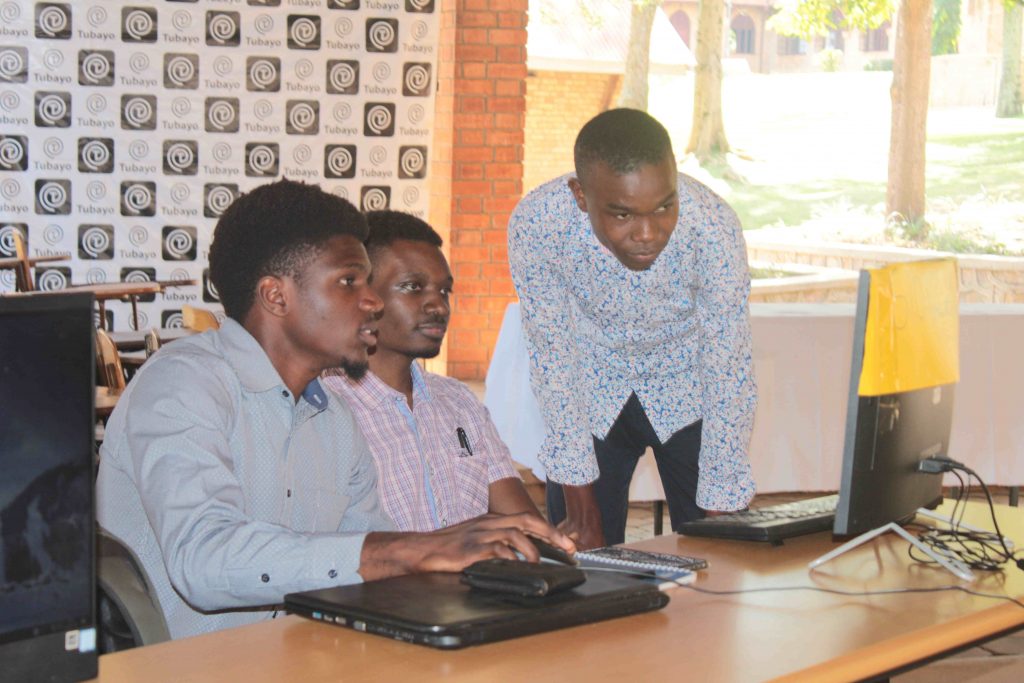By Agatha N. Biira
According to the Uganda Bureau of Statistics, up to 40% of food crops are lost due to spoilage post-harvest each year. This is a problem that every household in Uganda faces.
In 2020, Jean Paul Nageri’s father lost over one acre of bananas to food spoilage. He had delayed taking the produce to the market with the hope that the buyers would buy it from his home, but they did not. Everything was lost.
Since Nageri had pursued a Bachelor of Science in Agricultural Science and Entrepreneurship at Uganda Christian University (UCU), his father tasked him with finding a solution to the food spoilage so that it would not happen again. Nageri recalls suggesting cold rooms as a solution to the spoilage, but his father did not approve of it.
“I had to look into nature to solve this problem using organic means.” I did research and found out why oranges tend to last longer than avocadoes. That was how I came up with KaFresh under Sio-Valley Technologies,” said Nageri, the Co-Founder of Sio-Valley Technologies.
KaFresh is a plant-based organic powder that forms an edible coating that slows down the rate of respiration and maintains the quality of the product. The Kafresh powder is mixed with water and sprayed on the produce to increase its life span under room temperature.
The product is registered with the Uganda National Bureau of Standards. In the meantime, it operates mainly with exporters. Each pack goes for 8 dollars (29, 000 shillings) and for local dealers, they spray the product themselves for as low as 2.5 dollars (9, 000 shillings).
The products are manufactured in Kisasi, a suburb in the Capital City, and the products are further processed in Namanve Industrial Park in Mukono District.

Associate Professor Elizabeth Kizito, the Director of Innovation Research and Partnerships at UCU and a well-known agriculture scholar on the continent, believes students have embraced technology to grace agriculture, the backbone of the nation. “With such innovations, I believe we are going to boost the agriculture sector in a flash,” she said.
Explaining the concept at the UCU Digital Innovation Praxis Challenge on May 20, 2022 held in Nkoyoyo Hall, Nageri said they have been able to increase the lifespan of tomatoes to one month, sweet potatoes to three months, avocadoes to two months, and bananas to one month. “We have conducted trials with two of the largest fruit exporters in Uganda and they have yielded results,” said Nageri.
The Praxis challenge was organized by the Department of Computing and Technology under the Faculty of Engineering, Design, and Technology. The initiative is in its early stages and it will run for six months with effect from May 20, 2022.
The team admits to having encountered some difficulties, such as a lack of resources, funding, and faith in the product.”Raising capital has really been challenging, especially for an idea of this nature,” said Nageri. “Just because you have an idea doesn’t mean you will receive funding.”
What are the other team members saying?
The team plans to make smaller volumes of Kafresh so that even small-scale farmers are able to use this product. As per now, the product is available in 1kg packets, which can preserve about 45–50kg of produce. Nageri also says they plan to expand to East Africa, Africa, and the rest of the world with the hope of eliminating food waste.
When asked how KaFresh will help farmers, Nageri said it will improve the harvest quality and also reduce post-harvest losses.
Isaac Ogola, the Financial Officer of Sio-Valley Technologies, says there is nothing like this on the market. “We needed this product yesterday,” Ogola said. “It is more of a necessity to solve the problem of food waste.”


